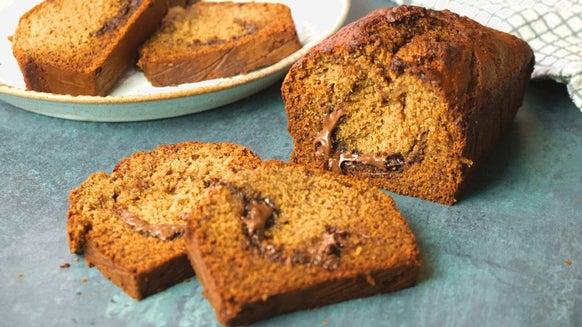What To Eat To Fuel Your Yoga Sessions

Those who are new to the practice or don’t know much about yoga might assume that every yogi follows an all-natural, plant-based, wholegrain, sugar-free, raw diet. But these assumptions are wild and pretty far from the truth.
Not only can yoga build up an appetite, but it also makes you think about what you
This can cause some confusion leading to questions such as ‘I want something sweet but I don’t need a chocolate bar, what should I be eating?’ or ‘I don’t want my stomach to rumble mid-way through my vinyasa, when should I eat?’.
We’re experts in the what-should-I-be-eating field so we’re about to shed some light on the questions that you may having around fuelling your body to get the most out of your yoga sessions.

What should I eat before yoga?
Your diet ritual pre-yoga session entirely depends on whether you’re a morning or afternoon yogi. I don’t think many of us would run to the mat to do a triangle pose with a full stomach.
The morning yogi
While it’s best to eat something to fuel a yoga session, morning sessions might limit you as to when you can eat beforehand, if you have time to eat at all.
A small breakfast about 45 minutes beforehand will be enough to tide you through a long session, but if you’re planning to move for less than 20 minutes then you’ll be okay with a light snack just beforehand.
If you eat right before stepping onto the mat, a light snack consisting of complex carbohydrates will keep you going through your yoga session.
Smoothies are a good option as they are light and shouldn’t leave you feeling too full, plus they’re easy to store in the fridge and finish later.
If you have time or like to eat a bigger breakfast before your session, opting for oats (overnight or instant, your choice) is a great choice as the energy from oats is broken down slowly, releasing energy gradually during your yoga session and even when you finish.
Top your oats with nuts or mix in some protein powder for an extra hit of protein to help your muscles with the workout.
The afternoon yogi
If you prefer to do yoga in the afternoon or evening, then you’ll have more time to let your food digest after eating a hearty meal.
Aim to finish eating a full meal 1 hour at the very latest before you start your yoga session — 2 hours is more optimal as your food has more time to digest and you won’t feel as sluggish when moving into your downward facing dog.
A balanced meal containing complex carbohydrates, complete protein and healthy fats will keep you energised, such as a wholemeal baguette with tuna and sweetcorn, or a baked sweet potato with minced meat and cheese.
What should I eat after yoga?
Whether you’re a morning or afternoon yogi, if you haven’t eaten a substantial meal beforehand, now is a good time to get some more food in to fuel your post-yoga recovery.
On the other hand, if you ate a meal a couple of hours beforehand, you’re unlikely to want a full three course meal. In this instance, a well-prepared snack to keep you feeling full until your next meal will keep you from reaching for the biscuit tin.
Contrary to the belief that yoga isn’t a workout, it most definitely uses muscles we didn’t even know existed, so we know first-hand how yoga works the body! This means that it’s important to keep your energy levels up as your body recovers, even if it means that you only eat a few grapes or nuts.
Again, focus on a balance between wholegrain carbohydrates, healthy fats and protein to restore your energy. You could choose wholegrain crackers with goats cheese and grapes, or a boiled egg with some nuts and seeds.
If a meal is more up your street, focus on complementary proteins if your diet is plant-based, such as the classic baked beans on toast with avocado and tomatoes.
Are there any foods that I should focus on?
We’re all unique individuals who have our own tastes and dislikes. There is no ‘one food suits all’ approach and you may find that you don’t like what your fellow yogis love.
Although we don’t recommend focusing on specific foods, some foods do have health benefits which may be of interest and which you may wish to include in your diet.
Cacao, for instance, is a great source of all three macronutrients and provides additional micronutrients in the form of iron, magnesium and potassium. It’s tasty and less processed which goes well if you prefer to eat less processed foods.
Do I need to worry about protein?
While it’s important to achieve an adequate intake of protein, it’s likely that you’ll get enough to support your body through your diet alone. If you’re plant-based or vegetarian, then it won’t do any harm to supplement with protein after your yoga session to ensure that you’re meeting your protein needs.
Alternatively, if your yoga sessions are strenuous and you find that you are constantly engaging your muscles, increasing your protein intake will help with recovery.
Take home message
We don’t mean to sound repetitive, but a balanced diet that includes all three macronutrients as well as a good supply of micronutrients will fuel your body and help with recovery so that you can sit on your yoga mat again feeling fresh and relaxed as soon as possible.







